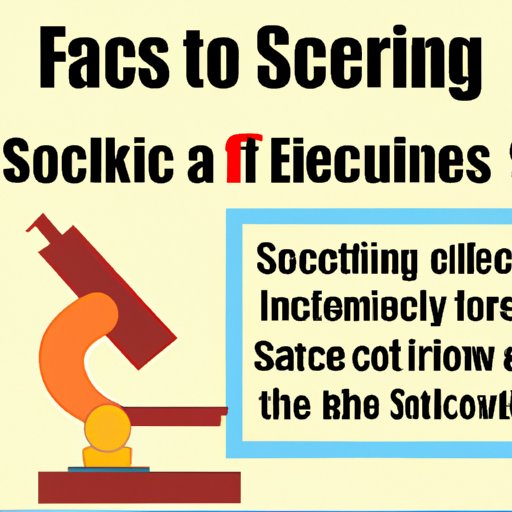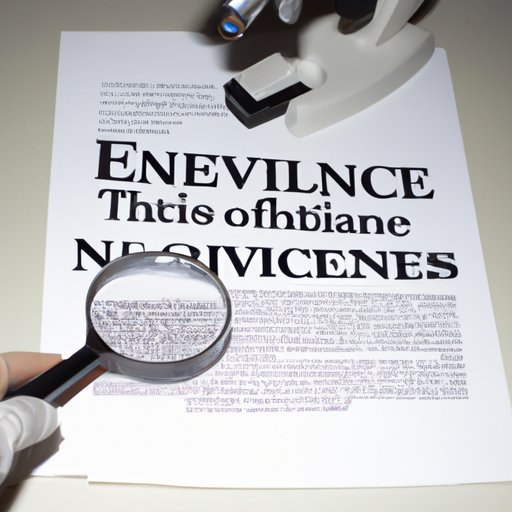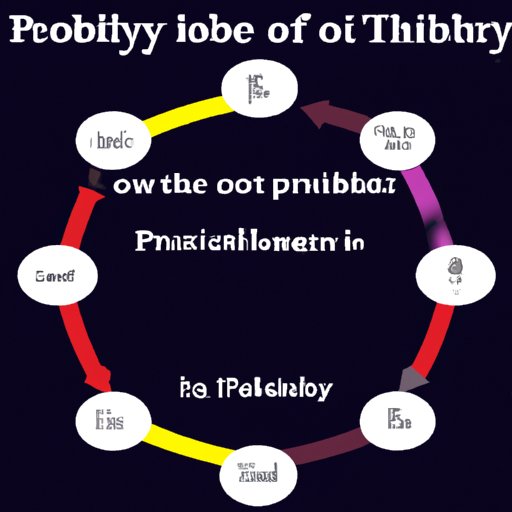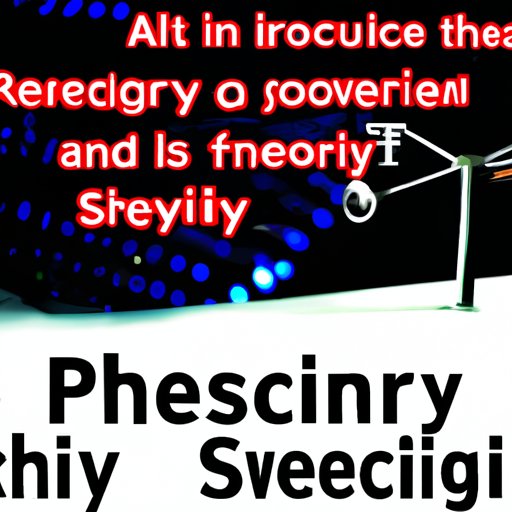Introduction: Exploring the Debate of Whether Science Can Prove Anything
The debate of whether science can prove anything has been raging for centuries. On one side are those who believe that science is capable of providing us with absolute truths, while on the other side are those who argue that science can only provide us with a limited understanding of the world around us. So what is the truth? Is science capable of proving anything or is it limited to providing us with an incomplete picture of reality? In this article, we will explore the different sides of this debate and examine the role of science in providing us with evidence and proof.
Definition of Scientific Proof
Before diving into the debate, it is important to define what we mean when we talk about scientific proof. Generally speaking, scientific proof is defined as “the process by which a scientist tests hypotheses and draws conclusions from the results of experiments and observations.” In other words, scientific proof is the process by which scientists use evidence to support or refute a particular theory. As such, scientific proof is based on the idea that data and evidence can be used to draw conclusions and make predictions about the natural world.
Overview of the Argument
At its core, the debate of whether science can prove anything comes down to the question of whether science is capable of providing us with absolute truths. Those who argue against the idea of scientific proof point out that science is limited in its ability to prove things and that any claims made by scientists must be taken with a grain of salt. They argue that science is based on theories and hypotheses which can never be proven definitively. On the other hand, supporters of the idea of scientific proof argue that science is the best tool we have for uncovering the truth and that through careful observation and experimentation, scientists can come to reliable conclusions about the natural world.

The Role of Science in Proving Facts
In order to determine whether science can prove anything, it is important to examine the role of science in providing us with evidence and proof. To do this, we must first consider what is meant by “evidence” and “proof.” Evidence is defined as “any information, document, or object that can be used to support a claim or statement.” Proof, on the other hand, is defined as “a convincing demonstration of the truth or accuracy of something.” In other words, evidence is used to support a claim or statement, while proof is used to demonstrate the truth of that claim or statement.
What Is the Role of Science in Proving or Disproving a Theory?
When it comes to the role of science in proving or disproving a theory, there are two primary methods that scientists use: experimentation and observation. Through experimentation, scientists can collect data and use it to test a hypothesis or theory. This data can then be used to either support or refute the hypothesis. Similarly, through observation, scientists can collect data and use it to test a hypothesis or theory. However, unlike experimentation, observation does not involve manipulating or changing the environment being studied; instead, scientists simply observe and record the data they collect.

Examining How Science Uses Evidence to Prove Its Claims
Once scientists have collected data through experimentation or observation, they can begin to analyze it and draw conclusions. This is done by looking for patterns in the data and using them to develop hypotheses and theories. Once a hypothesis or theory has been developed, scientists will then use additional data to test it. If the data supports the hypothesis or theory, then it can be considered to be scientifically proven. However, if the data does not support the hypothesis or theory, then it must be rejected.

Examining the Nature of Scientific Proof
When it comes to scientific proof, it is important to understand that it is not an absolute certainty. Instead, scientific proof is based on the idea that data and evidence can be used to draw conclusions and make predictions about the natural world. As such, scientific proof is not infallible and can be subject to error or bias. Furthermore, since scientific proof is based on the collection and analysis of data, it is also limited by the amount and quality of data available.
How Does Science Draw Conclusions?
In order to draw conclusions from data, scientists rely on the scientific method. This involves making observations, forming hypotheses, conducting experiments, analyzing data, and drawing conclusions. The scientific method is designed to reduce bias and ensure that conclusions are based on facts rather than speculation or opinion. As such, it is an important tool for scientists when attempting to prove or disprove a theory.
Exploring the Limitations of Scientific Proof
Despite its usefulness, the scientific method has its limitations. For one, it is limited by the amount and quality of data available. Additionally, the conclusions drawn from scientific proof can be subject to interpretation and may not always be 100% accurate. Finally, some theories may be too complex to be tested using the scientific method, making it difficult or impossible to prove or disprove them.
Is There an Ultimate Proof in Science?
It is important to note that while scientific proof can be used to draw conclusions and make predictions about the natural world, it is not an absolute truth. In other words, there is no “ultimate proof” in science. Instead, scientific proof is based on the idea that data and evidence can be used to draw conclusions and make predictions about the natural world. As such, scientific proof is subject to error and bias and cannot be relied upon as an absolute truth.

Exploring the Possibility of an Unprovable Theory
There are some who argue that there are some theories which may be beyond the reach of science and therefore cannot be proven or disproven. For example, some argue that certain metaphysical theories such as the existence of God or the afterlife are outside the realm of scientific inquiry and therefore cannot be proven or disproven. While this argument has some merit, it is important to note that science is constantly evolving and new discoveries are being made all the time. As such, it is possible that one day science may be able to provide us with answers to these questions.
Discussing the Idea That Some Things May Be Beyond the Reach of Science
The idea that some things may be beyond the reach of science is a controversial one. Supporters of this idea point out that science is limited in its ability to prove things and that any claims made by scientists must be taken with a grain of salt. They argue that some questions may be so complex that science is unable to provide us with definitive answers. On the other hand, opponents of this idea argue that science is the best tool we have for uncovering the truth and that through careful observation and experimentation, scientists can come to reliable conclusions about the natural world.
Examining the Impact of Science on Our Understanding of Reality
Regardless of where one stands on the debate of whether science can prove anything, it is clear that science has had a profound impact on our understanding of reality. Through careful observation and experimentation, scientists have been able to uncover secrets of the universe that would have otherwise gone unnoticed. As such, it is clear that science is an invaluable tool for uncovering the truth and providing us with a better understanding of the world around us.
Conclusion: Reviewing the Current State of the Debate
The debate of whether science can prove anything is one that has been raging for centuries. On one side are those who argue that science is capable of providing us with absolute truths, while on the other side are those who argue that science can only provide us with a limited understanding of the world around us. After examining the different sides of the debate, it is clear that the answer to this question is not a simple one. While science can provide us with evidence and proof, it is important to remember that it is not infallible and that some questions may be beyond the reach of science.
Summarizing the Arguments Presented
In summary, the debate of whether science can prove anything is a complex one. Supporters of the idea of scientific proof argue that science is the best tool we have for uncovering the truth and that through careful observation and experimentation, scientists can come to reliable conclusions about the natural world. On the other hand, opponents of this idea argue that science is limited in its ability to prove things and that some questions may be beyond the reach of science. Ultimately, the answer to this question is not a simple one and will likely depend on the individual and their beliefs.
Final Thoughts on Whether Science Can Prove Anything
At the end of the day, it is up to each individual to decide whether they believe science can prove anything or not. For some, the idea of scientific proof is an invaluable tool for uncovering the truth and providing us with a better understanding of the world around us. For others, the idea of scientific proof is limited in its ability to provide us with absolute truths and should be taken with a grain of salt. No matter which side of the debate one falls on, it is clear that science plays an important role in helping us to understand the world around us.
(Note: Is this article not meeting your expectations? Do you have knowledge or insights to share? Unlock new opportunities and expand your reach by joining our authors team. Click Registration to join us and share your expertise with our readers.)
